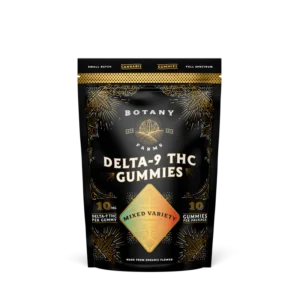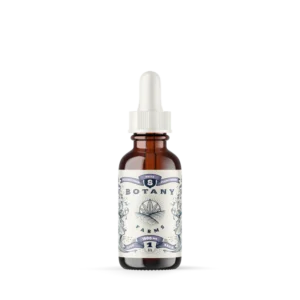If you live in the Lone Star State, you might be wondering whether it is legal to purchase and possess THCa. In case you don’t know what THCa is, no worries, because that’s what we’ll start with. But with the 2018 Farm Bill due to expire in September 2024, it’s certain that the legal status of various cannabinoids will get even blurrier.
However, luckily for hemp and cannabis users, things are beginning to change across the country, and Texas is one such example. In Texas, CBD and hemp-based products are legal, but what about THCa? Let’s find out what THCa is and if it’s legal in the great state of Texas.
Contents
Key Takeaways
- THCa is the acidic version of THC (Delta-9 THC). It is non-psychoactive in its original form.
- THCa becomes THC through decarboxylation, which involves the application of heat.
- Federally, THCa is legal as it complies with the 2018 Farm Bill.
- THCa is legal in Texas if it is derived from hemp and complies with the 2018 Farm Bill.
- There are no possession limits for THCa in Texas, as it is not considered a controlled substance.
What is THCa?
THCa stands for tetrahydrocannabinolic acid (not the same as THCv). It is the acidic version of THC, or Delta-9 THC. Without THCa, you would not have THC. THCa, through the process of decarboxylation, turns into THC.
The application of heat to THCa effectively changes its chemical structure and removes a carboxyl group from the molecule, hence the name decarboxylation. Prior to decarboxylation, THCa is non-intoxicating and non-psychoactive (just like CBD), which means that it does not produce a high.
This is because of the molecular structure of THCa. The extra carboxyl group prevents it from effectively binding with CB1 receptors, which are responsible for producing that sought-after high.
However, the decarboxylation process removes that carboxyl group, turning THCa into THC. THCa may have potential health benefits, but most of these still need further research.
THCa and Federal Law
According to the Farm Bill, cannabinoid products such as flower, edibles, tinctures, etc, are federally legal if they are hemp-derived. To be federally compliant, hemp must not contain more than 0.3% Delta-9 THC.
However, cannabis products derived from cannabis (marijuana) can contain higher levels of Delta-9 THC (over 0.3% by dry weight concentration) and are illegal.
THCa is technically federally legal. There is, of course, a gray area seeing as THCa turns into Delta-9 THC with nothing more than the application of heat. However, in itself, THCa does not have the same chemical structure as Delta-9 THC. Therefore, it falls within the realm of hemp as far as the legal definition goes.
Texas THCa Laws
Although hemp is federally legal following the passage of the 2018 Farm Bill, it remained illegal at the state level until last November when Texas governor Greg Abbott signed House Bill 1325, which legalized hemp cultivation and, crucially for Texan consumers of hemp-derived CBD products, the possession and sale of such products without a physician’s prescription.
Texas cannabis law complies with the Farm Bill. This means that hemp-derived products with no more than 0.3% Delta-9 THC are legal, including THCa. Although Texas doesn’t have explicit THCa laws, it regulates hemp production via the federal Farm Bill.
Is THCa a Controlled Substance in Texas?
THCa falls within the legal definition of hemp, according to the Texas Agricultural Code and the 2018 Farm Bill. Since THCa is derived from hemp, it is not a controlled substance.
THCa Possession Limits in Texas
THCa is not under any possession limits in Texas. So you can actually possess as much THCa as you want as long as the Delta-9 content does not go over 0.3% or it gets designated as a controlled substance.
Is THCa Legal in Texas?
Technically speaking, yes, THCa is legal in Texas, as long as it is derived from hemp. Seeing as it is legal in Texas, check out some of these awesome high THCa hemp strains by Botany Farms!
Is THCa Safe?
There is no evidence to indicate that THCa is unsafe, toxic, or poses any life-threatening risks. There may be some extremely minor side effects, although these are also rare. As usual, the key to enjoying cannabinoids safely is moderation. Start with low doses and assess how your body responds before increasing the dose. The rule of thumb with cannabinoids is that ‘more is not always better.’
Where to Buy THCa in Texas?
We’ll have some awesome THCa flower and other related products available here at Botany Farms very soon. However, for now, we’d like to recommend some legally compliant Delta-9 THC products, such as these fan-favorite Mango Delta-9 THC Microdose Gummies and our own Botany Farms Blue Raspberry Delta-9 THC Gummies.
Also, check out our blog to learn more about THCa, its benefits and effects.
THCa Legal in Texas FAQs
1. Is it legal to buy THCA products in Texas?
Yes—but only if they are derived from hemp and contain no more than 0.3% Delta‑9 THC by dry weight. This aligns with Texas’s hemp law, although products with high THCA levels may still test over that limit once decarboxylated, potentially landing them outside legal boundaries.
2. Can consuming THCA in Texas get you in trouble?
Potentially—if THCA is heated, it converts into Delta‑9 THC and becomes psychoactive. In that form, consuming it in Texas could violate laws that prohibit consumption of Delta‑9 THC. Users must be cautious about how they consume or store THCA products.
3. Are there restrictions on transporting THCA within Texas?
Transporting hemp-derived THCA is generally allowed under the same hemp regulations, as long as the Delta‑9 THC level remains under 0.3%. However, transporting decarbed products—like smoked or baked THCA—could be risky, as they may contain illegal levels of active THC.
4. What’s the risk of testing positive for THC after using THCA?
Smoking, vaping, or cooking THCA converts it to Delta‑9 THC in your body, which can result in a positive drug test. Because saliva and urine tests typically detect metabolites of Delta‑9, using THCA products in ways that activate THC could lead to detection.
5. How can I stay compliant with Texas’s THCA regulations?
To remain compliant, always buy from licensed hemp vendors that provide up-to-date lab reports showing both THCA and Delta‑9 levels. Avoid heating the products to ensure they remain non-psychoactive, and keep informed on local enforcement trends, as rules around hemp and cannabinoid products can change quickly.
References:
- https://www.usda.gov/farmbill
- https://capitol.texas.gov/tlodocs/86R/billtext/pdf/HB01325I.pdf













